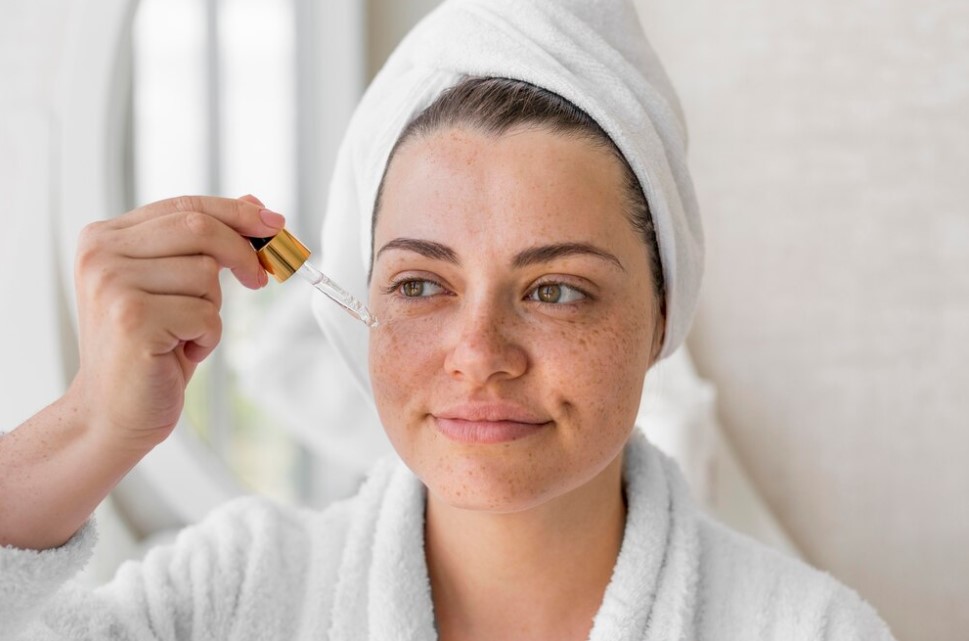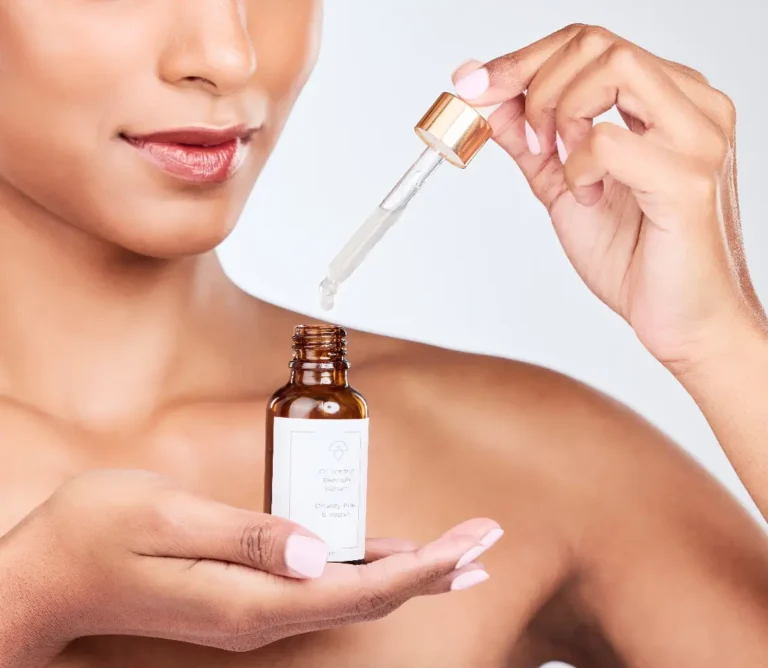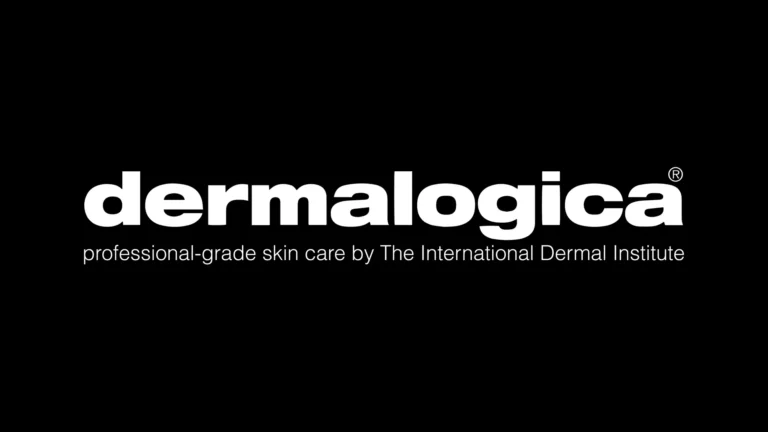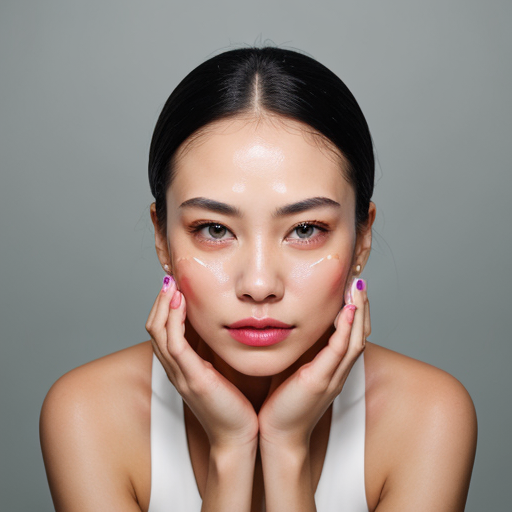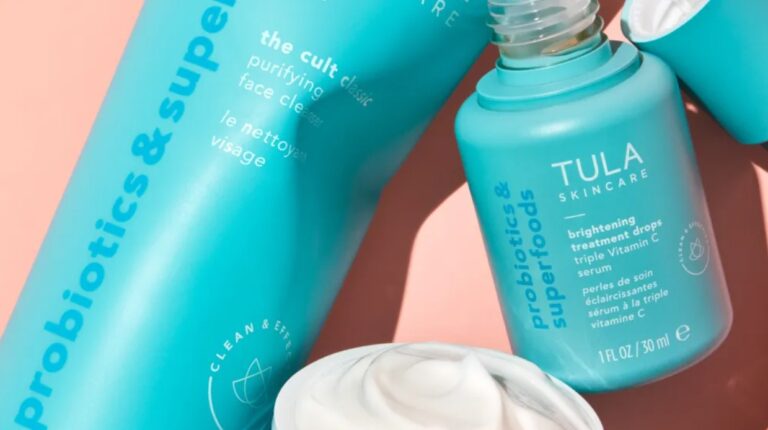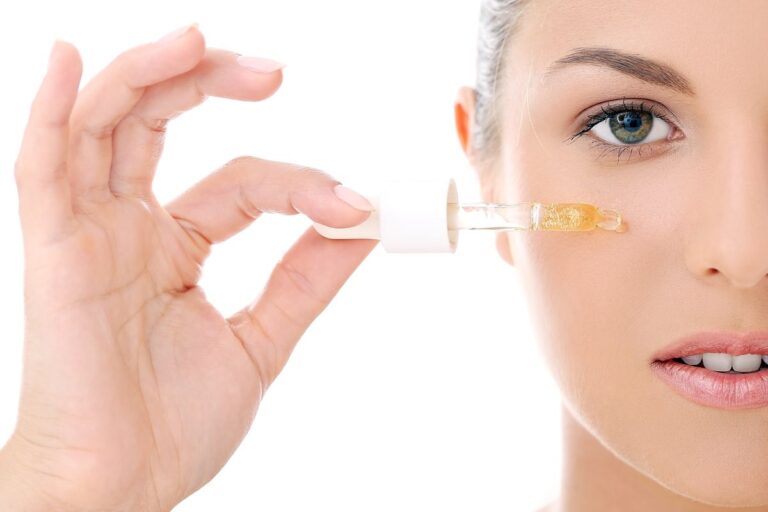Is Hyaluronic Acid Good For Acne: The Impact of HA Explained
Hyaluronan, Hyaluronate, Hyaluronic acid, or just HA, has garnered attention for the exceptional abilities: plumping & hydrating all types of skin, and making it a standout in skincare solutions. In this article, we explore its potential in treating acne, providing insights from a seasoned skin specialist. Discover how it moisturizers, revitalizes, and addresses acne concerns by sustaining adequate hydration levels. This comprehensive guide illuminates its role in promoting clearer, shinier, healthier-looking skin, offering a rejuvenating pathway to a more radiant complexion.
So let’s find out: is hyaluronic acid good for acne, how it works, impacts, and treats your skin.
Is Hyaluronic Acid Good For Acne: Characteristics & Mechanism of Action
Famed for its capacity to keep moisture at a rate up to almost 1000 times its weight, HA has become a vital component in moisturizers, serums, and widely-used skincare products.
At its core, HA is a non-sulfated glycosaminoglycan, a special kind of molecules that organically occur in our connective tissues. Its unique structure allows it to bind the molecules of liquids, effectively doing the “job” – plumping & deeply hydrating all types of skin from within. This hydration is not just superficial; HA penetrates deeply into the dermis, where it replenishes moisture reservoirs and helps maintain and preserve skin elasticity and echogenicity of dermis.
Beyond its hydrating prowess, HA also plays a crucial role in regeneration and skin repair. Studies indicate that HA’s aids in wound healing by regulating inflammation and reinforcing the skin’s natural barrier. This makes it advantageous for individuals with problematic acne-prone skin, as it alleviates irritation/redness while delivering necessary hydration avoiding blocking pores.

Acne Treatment
Hyaluronate has gained increasing recognition for its transformative role in managing acne, offering diverse benefits that extend beyond conventional treatments. Central to its appeal is HA’s remarkable ability to hydrate the skin effectively while avoiding the pitfalls of excessive oiliness that can sometimes worsen acne conditions.
Is Hyaluronic Acid Good For Acne: Balancing Oil Production
Balancing skin moisture is crucial in acne treatment to keep excessive sebum secretion from happening. HA excels in this regard by attracting moisture to the skin’s surface and locking it in, ensuring hydration avoiding clogging your pores. This balance not only helps prevent dryness-induced irritation but also reduces the risks of acne flare-ups.
Skin Problems: Inflammation and Redness
Inflammation is a characteristic feature of skin prone to acne, often resulting in redness or a discomfort. HA’s innate soothing properties play a pivotal role in calming inflamed areas, alleviating redness, and promoting a more even complexion. By fortifying the skin’s barrier function, HA supports its resilience against external aggressors, fostering an environment conducive to acne healing.
Non-Comedogenic Properties
One of HA’s standout attributes is its non-comedogenic nature, meaning it does not block pores—a crucial consideration for those prone to acne. Its lightweight consistency allows HA to penetrate deeply into your skin, delivering essential hydration where it’s needed most without leaving behind a greasy residue or exacerbating acne symptoms.
Facilitating Skin Repair and Renewal
Beyond hydration, HA contributes to the skin’s repair and renewal processes, surely essential for managing acne and minimizing its aftermath. By enhancing cellular regeneration and supporting collagen synthesis, HA aids in more effectively healing acne lesions, definitely reducing the risk of scarring and promoting a smoother complexion over time.
Synergistic Benefits
HA’s compatibility with a wide range of components enhances its efficacy in acne management. Whether combined with benzoyl peroxide (BzO)₂, hyaluronate, or analogs of vitamin A – retinoids, HA complements these treatments by boosting their effectiveness and maintaining balanced skin hydration and resilience during the acne treatment regimen.
How Strong Will Hyaluronic Acid Be While Removing Acne Scars?
The ability of hyaluronate to maintain ideal moisture levels in various skin types is one of its main benefits in the treatment of acne scars. Satisfactory hydration is pivotal for scar recuperating because it underpins the skin’s fundamental recovery forms. By attracting and holding fluids within the layers of the skin, HA makes a difference stout up skin, making undesirable scars show up less recognizable over time. To gain desired results, HA can be used in conjunction with other scar-removal procedures including chemical peels, or laser therapy, or microneedling. By enhancing the skin’s response to therapy and advancing the general outcomes of scar removal, its capacity to hydrate and encourage skin healing enhances these tactics.
Is Hyaluronic Acid Good For Acne: Considerations and Expectations
While HA can make acne scars appear less visible, you might not have the same improvements. It is based on scar severity, skin type (combined, oily, dry, etc.), and adherence to a consistent skincare regimen. Skin care pro or dermatologist consultation will definitely help accommodate the most helpful treatment, a custom-made approach tailored to specific scar kind, according to skin conditions.
Because of its moisturizing, calming, and skin-smoothing qualities, HA shows promise in the treatment of acne scars. Hyaluronate can help develop silky, more even-toned skin texture and lessen the visible apparent signs of acne scars over time when used correctly and in tandem with other therapies.
Is Hyaluronic Acid Good For Acne: How to Apply for Best Results
Applying hyaluronate effectively requires a strategic approach to maximize its benefits while addressing specific concerns associated with acne.
- Cleanse Thoroughly: Prior to applying HA, assure that all the areas of your face is totally clean. By doing this, you can make sure that your skin is clear of impurities and extra oil without blocking your pores.
- Use the Appropriate Concentration: Select a HA containing item with the right concentration that has been optimized especially for skin types that are at a risk for acne. Carefully choose moisturizers or serums that won’t make your acne worse.
- Apply HA on Damp Skin: This helps HA keep and retain moisture effectively, ensuring it penetrates deeply for optimal hydration benefits.
- Mix with Anti-Acne Ingredients: Consider combining salicylic acid or niacinamide with HA. Select a HA product with the right concentration that was made especially for skin types that are prone to acne. Select light serums or moisturizers that won’t worsen your acne.
- Follow with a Suitable SPF and Moisturizer: After HA application, use a non-comedogenic moisturizer to preserve the skin’s barrier function and boost moisture levels. Use an appropriate SPF afterward. Apply SPF at the end of your daily regimen to shield your skin from UV rays, especially if you’re utilizing acne treatments.
- Be Consistent: Incorporate it into your nightly and morning routines to support generally healthy skin and to maintain your skin sufficiently hydrated.
Is Hyaluronic Acid Good For Acne: Risks Explained
Is hyaluronic acid good for acne? Carefully learn the potential pros/cons and emerging issues before starting to use it on acne-prone, allergic types, particularly in relation to how well it treats acne.
1. Potential for Increasing Acne:
- Despite its hydrating benefits, improper application of HA can result in pore congestion and exacerbate acne.
- It’s crucial to cleanse thoroughly before starting to apply HA to prevent clogged pores.
2. Sensitivity to Formulas:
- Numerous HA products may contain allergens, unwanted preservatives or certain harmful substances labeled to worsen acne-prone/sensitive skin.
- Steer clear of allergy-causing items and choose for HA formulations made especially for skin prone to acne individuals.
3. Risk of Overhydration and Pore Blockage:
- While HA itself is non-comedogenic, excessive use or inappropriate application techniques may lead to pore blockage.
- Use HA moderately and according to provided guidelines to prevent acne flare-ups.
4. Potential for Skin Sensitivity Reactions:
- Types that are too responsive to HA may experience mild irritation/allergic reactions.
- Before starting to use a chosen skincare bestsellers widely, do a patch testing, especially if you have a history of skin sensitivity.
For skin prone to reactions like acne, it is imperative to carefully weigh all the cons and pros of including acid into chosen skincare and cosmetic program. When opting for HA in an effort to keep your skin organically hydrated and healthy, you may lessen the likelihood of adverse responses by being aware of these factors and taking steps to stop them.
May HA’s Daily Use Lead to Acne Flare Ups?
Dermatologists agree that hyaluronic acid (HA) is claimed to be a safe choice for moisturizing, but several concerns about how it can affect skin that is prone to acne randomly appear.
- Possibility of Congestion in the Pores
- Sensitivity to Products Formulas
- Maintaining Hydra Balance With Non-Increasing Acne

Do’s and Don’ts for Hyaluronic Acid Usage
HA claims to have deep hydrating options, but is hyaluronic acid good for acne? Each person’s skin type is unique, so it’s not always good for skin that breaks out too easily.
Ideal Face for Hyaluronic Acid:
- Dry/Dehydrated Skin: Restoring moisture effectively, the acid enhances the overall hydration, texture of dry or parched skin.
- Skin Sensitivity: Because of its mild nature, HA is fine for skin types that may respond negatively to more aggressive acne treatments.
- Combination Type: HA will surely balance levels of moisture in mentioned type of skin not making it too oily and deliver tailored hydration where it’s needed.
- Aging Type: Because it plumps skin, the potential presence of wrinkles or fine lines is almost reduced.
Hyaluronic Acid Isn’t the Best Option:
- Excessive Oiliness: HA may feel heavy or increase oiliness in individuals with extremely oily skin who are prone to problems like acne, which may have an effect on acne control.
- During Active Breakouts: HA is not inherently comedogenic, but it may not be suitable to combine it with acne care that targets oil and bacteria management while acne is active.
- Risk of Allergic responses: Some of you may be allergic to HA or commonly found components in HA formulations, which could cause allergic responses or skin irritation.
- Concerns About Pore Congestion: Improper application or use of HA products that got occlusive ingredients included could contribute to pore congestion, potentially worsening acne symptoms.
Importance of Professional Guidance:
Before incorporating HA, ask for advice from a reputable dermatologist or trusted skincare pro. They can offer customized advice based on each person’s unique skin needs, the acne’s severity, and their overall skincare goals.
Is Hyaluronic Acid Good For Acne And Every Day Usage
HA use on a regular basis can be extremely helpful in preserving the complete hydration and overall condition of the skin. To ensure its best use and efficacy, a few things need to be taken into account.
Advantages of Daily HA Application:
- Improved Texture: By increasing moisture levels and stimulating the molecules of collagen, regular HA treatment may bring a smoother, shiny, more supple skin.
- Continuous Skin Hydration: HA is perfect for everyday usage because of its capacity to pump in and safely hold moisture, keeping the skin hydrated all day.
- Suitability for Every Skin Kind: It is generally well responded by all skin types mentioned, including sensitive/acne-prone kinds.
People may take advantage of HA’s moisturizing qualities for smoother, healthier-looking skin by including it into an estimated daily skin care routine and using it according to the right application methods, which include cleaning their skin first and then applying moisturizer and sunscreen. Speaking with a skincare expert you find out: is hyaluronic acid good for acne or not and ensure optimal HA consumption.
